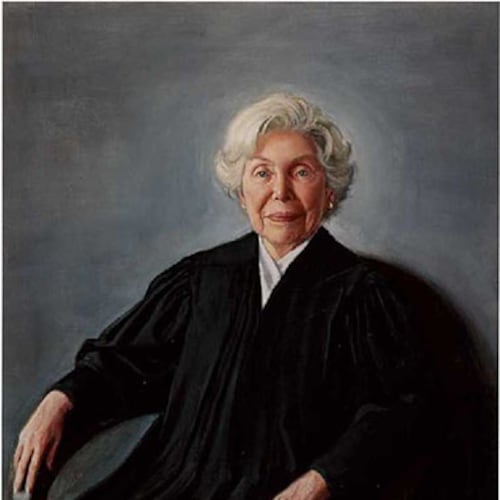A Fulton County judge on Wednesday re-entered an order dismissing a challenge to the state’s “fetal pain” law that imposed new restrictions on late-term abortions.
The action by Superior Court Judge Kimberly Esmond Adams will allow three
Credit: Bill Rankin
Credit: Bill Rankin
obstetricians who sought to overturn the law the chance to appeal her decision to the Georgia Supreme Court.
In late October, Adams issued an under-the-radar order dismissing the case. In doing so, she declined to strike down the 2012 statute, which imposes a general ban on abortions after 20 weeks of pregnancy. The law, signed May 1, 2012, by Gov. Nathan Deal, says that a fetus can feel pain at 20 weeks; therefore the state has an interest in protecting it.
Doctors who violate the law can be charged with a felony and face up to 10 years in prison.
On Wednesday, Don Samuel, a lawyer for the obstetricians, told Adams that the plaintiffs’ lawyers never received her Oct. 30 order. For that reason, the legal team missed the 30-day window to file an appeal when it had every intention to do so, he said.
Britt Grant, the state’s solicitor general, told Adams she would not oppose the motion.
As for Adams' ruling in November, Grant said, "We think your order was correct and we expect it to be upheld."
Adams said she had been surprised no appeal had been filed and couldn’t understand what happened after her office sent out her order to counsel for both sides.
“There has to have been some issue, quite frankly, that caused plaintiff’s counsel not to receive a copy of the order,” Adams said. “I have no idea what happened.”
Adams said she decided to vacate her prior order and re-enter it to allow the appeal to go forward to serve the “ends of justice” and because “of the importance of the subject matter of this litigation.”
In late 2012, just days before the law was about to take effect, another Fulton judge suspended enforcement of the law, but that injunction was vacated in November when Adams dismissed the case.
After the hearing, Jennifer Dalven, director of the ACLU’s Reproductive Freedom Project, said the plaintiffs’ lawyers will ask Adams to reenter the injunction pending the appeal of the judge’s ruling to the state Supreme Court.
In her ruling issued in November, Adams cited a 2014 state Supreme Court precedent that grants broad immunity to state officials. This includes litigation – like the suit filed to overturn the “fetal pain” law -- in which a plaintiff seeks an injunction to suspend enforcement of a law or obtain a judgment that declares a law to be unconstitutional.
In her 11-page decision, Adams noted she “did not arrive at this conclusion with haste or ease.”
“As evidenced by the continued debate throughout this nation, issues related to reproductive and abortion rights often involve competing interests, concerns and ideologies,” she said. “(T)he court is mindful of the grave issues raised by the above-styled case and troubled by the realities of this matter.”
About the Author
The Latest
Featured



